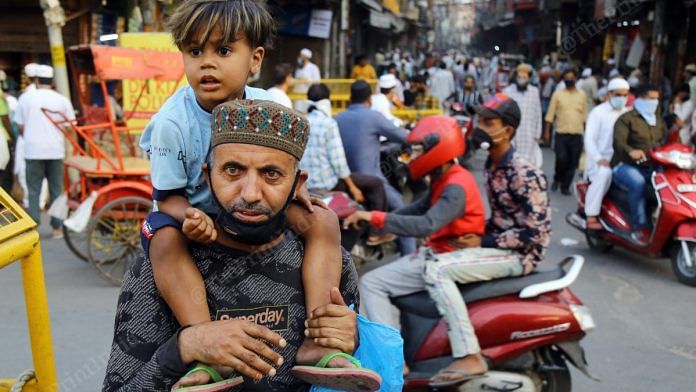The United Nations, on 18 December 1992, released its Declaration on the Rights of Persons Belonging to National or Ethnic, Religious and Linguistic Minorities. In the same year, the National Commission for Minorities was constituted by the government. Later on, in 2006, a Ministry of Minority Affairs was formed, carved out from the Ministry of Social Justice and Empowerment.
This is why 18 December has been celebrated as Minority Rights Day since 2013. On this day, the importance of preservation and protection of their rights is highlighted by drawing people’s attention towards the challenges and problems related to religious, cultural, linguistic, and ethnic minorities. At the same time, as our moral obligation, greater emphasis is laid on ending all kinds of discrimination against them.
In India, five religious communities were originally notified as minorities. These include Muslims, Sikhs, Christians, Buddhists, and Zoroastrians. Jains were included as a minority community in 2014.
Out of these, Muslims form the largest religious grouping; and in India, for all practical purposes, the term ‘minority’ inadvertently refers to only Muslims. Followers of other religions are either not discussed at all or are only occasionally deliberated upon.
Also Read: Pasmanda Muslims missing from positions of power— Waqf Board to Jamaat-e-Islami
Muslim society is not homogeneous
It’s quite apparent that the Muslim society is not homogeneous and there exists a deep division within its ranks, based in the form of ruling classes i.e. Ashraaf Muslims, who came from ‘outside’, and the converted indigenous Pasmanda Muslims. A distinction is clearly visible with differences in language, attire, civilisation, and cultural habits.
Owing to their status of a ruling class, the Ashraafs form a dominant community, while the indigenous Pasmandas still remain deprived.
In our Constitution, there is no clear definition for the word ‘minority’, yet it was decided in the Constituent Assembly meetings that a specialised safeguard mechanism would be adopted for the welfare of the minority communities, disadvantaged backward classes, and tribal areas of the country.
According to the United Nations, a ‘minority community’ is one whose members share common characteristics of culture, religion, language, or a combination of these, and are socially, politically, and economically non-dominant while being few in number.
If the Muslim society is examined on the basis of the UN definition, then it becomes clear that there is no absolute cultural similarity between the ruling classes – that is, the Ashraafs and the indigenous Pasmanda Muslims. While the Ashraaf class continues to follow its Arabic-Iranian culture, the Pasmanda class is deeply embedded in the regional culture and ethos of India.
So, considering India’s largest ‘minority’ as a singular unit does not seem appropriate in order to comprehend and resolve the myriad problems being faced by the Muslims living in this country.
Also Read: Pasmanda Muslims are using social media to counter those defending the medieval Taliban
Why are Pasmanda Muslims separated?
The experiences so far indicate that almost all the benefits and facilities provided in the name of ‘minority welfare’ remain confined to the dominant Ashraaf community. A large portion of it does not even reach other minority communities and Pasmandas in the way it should. Perhaps this is a prominent reason why intellectuals and political leaders of the Ashraaf class always try to keep the term ‘minority’ synonymous with ‘Muslims’ and strive hard to present the Muslim society as homogenous.
Under the influence of the politics related to Muslim discourse in India, the rights of other minority communities and the deprived sections of Muslim society never take centre stage during mainstream debates. This is also the reason why the benefits of public welfare schemes launched by the government do not get fully delivered to their rightful beneficiaries.
Also Read: India’s Muslim community under a churn: 85% backward Pasmandas up against 15% Ashrafs
Protection and security of minorities
One of the objectives of the Prime Minister’s new 15-point programme for the welfare of minorities is to ensure that the benefits of various government schemes, which are meant for the underprivileged classes, also reach the marginalised sections of the minority communities.
In order to fulfil this objective, it seems quite necessary and appropriate that matters related to the rights and security of the deprived – indigenous Pasmanda – and other minority communities be brought to the centre stage of the debate. This can be done by establishing a clear distinction between the two sections of Muslim society. It is also important to ensure that the benefits of various government schemes for the underprivileged reach the disadvantaged sections of the minority communities.
If we look closely, minority rights mainly include security and adequate participation in governance and administration. As far as the issue of security is concerned, in incidents like religious riots and mob lynching, it is the indigenous Pasmanda Muslims who suffer the loss of life and property in most cases. As far as participation in the administration and governance is concerned, the Ashraaf class acquires more than twice the proportion of its numerical strength, while the indigenous Pasmanda class is at a disadvantage.
In order to fully comprehend the questions on protection and preservation of minority rights and find solutions for them, it seems appropriate to identify the most disadvantaged so that they can be connected to the rest of the nation, and have a chance at prosperity.
Dr Faiyaz Ahmad Fyzie is a writer, translator, columnist, media panellist, social worker, and physician by profession. Views are personal.
(Edited by Srinjoy Dey)



